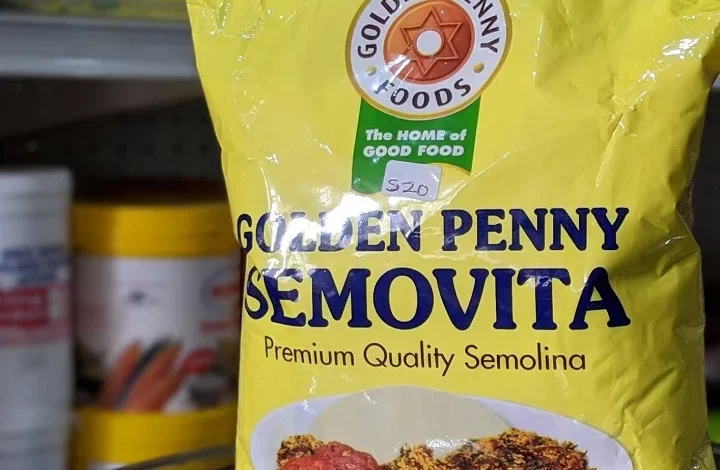
The National Agency for Food and Drug Administration and Control (NAFDAC) has refuted allegations that Golden Penny semovita contains plastic materials, assuring the public of the safety of the popular brand.
POLITICS NIGERIA reports that Golden Penny semovita, a widely consumed wheat-based semolina flour, came under scrutiny after a video circulating on social media depicted a woman rinsing the product in a sieve. The woman claimed to have discovered a residual elastic substance, which she believed to be plastic.
In response to the video, NAFDAC conducted an extensive investigation and released a statement on Monday addressing the issue.
The agency clarified that a similar video had surfaced in 2020, prompting an urgent post-market analysis involving various semolina brands.
The statement had it that laboratory tests conducted by NAFDAC conclusively revealed that Golden Penny Semovita does not contain any plastic or harmful contaminants, debunking the allegations made in the social media video.
The agency further explained that semolina, being a type of flour made from wheat, naturally contains gluten, a mixture of proteins known as glutenin and gliadin. Glutenin provides the dough with its rising properties during baking, while gliadin imparts a viscous and elastic quality.
The statement partly reads:
“The rubbery-like material that was observed in the video after many washings with water is the gluten that formed after the gluten-forming proteins get mixed with water,” NAFDAC said.
“Golden Penny Semovita is manufactured by Flour Mills of Nigeria Plc., a registered company which has been granted marketing authorisation by NAFDAC to manufacture the product and offer it for sale in Nigeria. The company’s operations were certified by NAFDAC after meeting the requirements of good manufacturing practice (GMP) and the relevant Nigerian industrial standards (NIS).
“NAFDAC wishes to reassure the public that Golden Penny Semovita and indeed all other semolina products registered by the Agency are safe for human consumption having been so approved by the Agency, following science-driven regulatory diligence.
“There is no cause for apprehension by consumers as such approved products are manufactured in line with Good manufacturing practice (GMP) and in compliance with the Nigerian industrial standards, which are continuously monitored by NAFDAC.
“Members of the public are implored to exercise discretion in the use of social media to address any suspicion they may have on regulated products. Resorting to social media has the tendency to cause fear and panic.”
